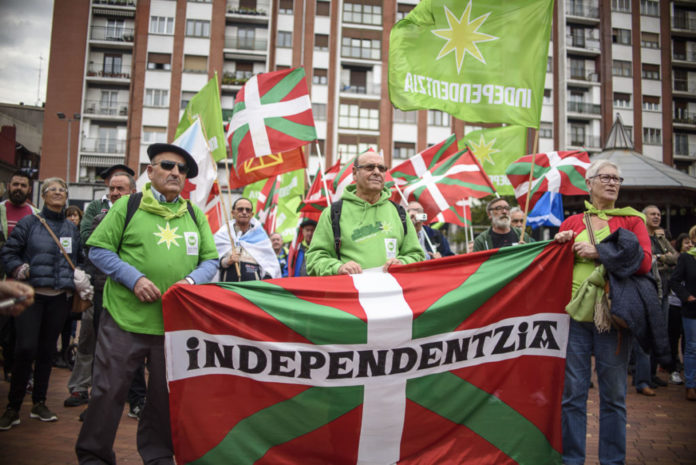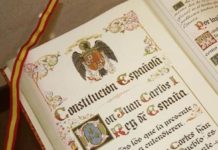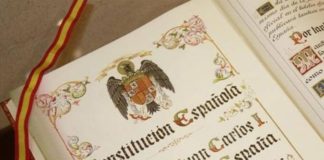The first part of the article we published, here: https://www.naziogintza.eus/en/self-determination-a-universal-right-of-all-peoples-part-1/
JUDGMENT OF THE INTERNATIONAL COURT OF JUSTICE OF THE HAGUE (2010):
In 2008 Kosovo made a unilateral declaration of independence. Serbia took this matter to international courts, and the International Court of Justice in The Hague issued a landmark ruling, in 2010.
“International Law does not have an express prohibition regarding declarations of independence. Therefore, the 2008 declaration of independence of Kosovo does not violate international law ”
In other words, in international law there is no law that prohibits unilateral independence. However, three conditions must be met for it to be accepted: that declaration of independence must be made by democratic institutions (parliament, for example), without violence, and the metropolis must have repeatedly refused dialogue and agreement before.
It should be noted that so far Kosovo has not yet held any self-determination referendum. Parliament proclaimed independence and that independence materialized without a referendum.
In Europe there are no regulations detailing what should be done in the event of a unilateral declaration of independence.
References:
https://elpais.com/internacional/2010/07/22/actualidad/1279749602_850215.html (in Spanish)
https://web.archive.org/web/20100821072303/http://www.icj-cij.org/docket/files/141/16012.pdf (in English)
SOME IDEAS ABOUT SELF-DETERMINATION AND INDEPENDENCE COLLECTED FROM INTERNATIONAL LAW AND POLITICAL PRAXIS:
1.-) To be internationally accepted, an independence process must be democratic, it must not use violence and it must respect human rights.
2.-) Europe will not promote any independence process, but, since it is pragmatic, it will seek a legal adjustment for a secession process that has already been completed, as long as that process has been democratic
3.-) All declarations of independence arise from an approach of practice: first they are proclaimed, and then they are discussed politically
4.-) The opinion of international legislators and those of Spain is different: in Europe they believe that the law must adapt to political reality, and in Spain the opposite. In other words, in Europe they believe that the law should not be a problem, but the solution to a problem.
5.-) All the secession processes that have occurred in Europe in recent decades have occurred in territories with their own political institutions.
6.-) To win a referendum on self-determination, this referendum must be organized by the government of the country that wants to become independent (in those cases the referendum is almost always won for independence)
7.-) National awareness must be strengthened to be able to launch an independence process. Peoples with a weak national consciousness can hardly become independent.
8.-) In a process of secession, sooner or later, it is almost always necessary to resort to civil disobedience
9.-) Beyond self-determination, a process of secession can also be achieved in other ways: unilaterally (for example Kosovo). This formula is legal, according to the International Court of Justice in The Hague.
10.-) The so-called “Right to decide” does not exist legally. The right of self-determination yes, although international laws are confusing and in the opinion of some jurists it is only valid for the colonies. However, political praxis teaches us that many Peoples that were not colonies, in Europe, have exercised the right of self-determination
INDEPENDENCE PROCESSES. HISTORICAL REVIEW:
1.-) To begin with, a finding: most of the independence processes in Europe have not been achieved by agreement (the exceptions are the Czech Republic and Slovakia, on the one hand, and Montenegro, on the other)
2.-) Since 1990, 22 binding independence referendums have been held, and only 6 have been by agreement
3.-) In the last 30 years, independence referendums have been held in the new states that have been formed in Europe. In most cases, the referendums have been held after the parliaments proclaimed independence (for example, in Lithuania, Estonia, Latvia, Ukraine, Georgia, Croatia…). Only in two cases has it been the other way around: first the referendum, and then independence (in Slovenia and Montenegro). The exception is Kosovo, since no referendum has been held there
4.-) International recognition is essential to be able to materialize independence (in addition to control of the territory). This means that international relations must be worked on before proclaiming independence (in the Basque Country this work is pending). In practice, if the United States or Russia recognize the new state, it will go a long way toward achieving international “homologation”. It goes without saying that political or geo-strategic interests play a large role in the recognition of a new state. If international recognition is not achieved, the new state becomes a “ghost-state” (for example, South Ossetia or Abkhazia – in Georgia – and Somaliland – in Somalia). Other states have greater international recognition, but are not members of the UN: Kosovo, Palestine, Sahara… ..
5.-) Unilateral declarations of independence are not illegal, the International Court of Justice in The Hague ruled in 2010 regarding Kosovo.
THE RIGHT OF SELF-DETERMINATION VERSUS THE RIGHT TO DECIDE:
1.- ) THE RIGHT OF SELF-DETERMINATION: Exists in the international body of law. Many jurists say that it can only be applied in two cases: A.-) in the case of the colonies (what is a colony? — we could ask later); B.-) and in the case of the Peoples subjected to a dictatorship, that is, Peoples that are in a non-democratic siituation. Politically and culturally-oppressed peoples (according to this, the Southern Basque Country, for example, would have had the right to self-determination during the Franco dictatorship, but not now. This is quite surprising.)
In 1999, the Supreme Court of Canada did not recognize Québec’s right to self-determination, but it did recognize the legitimacy of secession, if a “significant majority” requested it, according to the democratic principle. Thus was born the political concept of the “right to decide”. The Government of Québec, however, continued to insist upon the right to self-determination.
2.-) THE RIGHT TO DECIDE: It does not exist in the international legal system. It has a close relationship with the “democratic principle”. It is a democratic way of resolving territorial conflicts, as seen in Québec. It can only be considered in democratic regimes (Québec, Scotland …) In short, this is its meaning: if a People requests a certain political status in a democratic regime, that must be accepted, according to the democratic principle. The defenders of the “right to decide” do not enter into other discussions (if the People who want to organize the referendum is a colony or not, if the People are oppressed or not …). They only proclaim that the democratic decisions of citizens must be respected.
SYNTHESIS:
At NAZIOGINTZA we firmly believe that the Basque Country, as a Nation, has the right to self-determination. But we do not restrict ourselves to the simple defense of the right to self-determination: we go further, and we demand the exercise of the right to self-determination. We are also in favor of exercising self-determination in those parts of our Country where possible, in those parts of Euskal Herria where there are political majorities in favor of exercising self-determination.
It is not true that self-determination can only apply to the colonies. Is Québec, which has organized two self-determination referendums, a colony of Canada? Is Scotland a colony of the United Kingdom? That same question could be asked about the new states of Europe that have achieved independence in the last 30 years… .. Were they colonies? Did they fulfill the so-called “salt water principle”? No way.
We do not consider it appropriate to create new concepts to replace concepts that are solid and well established. The so-called “right to decide” does not exist in the international legal order. To resolve territorial conflicts, the UN long ago admitted that the best, most adequate and democratic tool are self-determination referendums. The historical conflict that the Basque Country has with Spain and France will only be resolved in a democratic and civilized way with the exercise of the right to self-determination.
We are not naive, however. We know very well that Spain and France are allergic to true democracy. We know that they will hardly ever accept the self-determination of Euskal Herria or of Catalonia. Therefore, the unilateral way and disobedience will be inevitable when the time comes, when a favorable occasion exists. Meanwhile, let us continue sowing and spreading Basque national consciousness.






